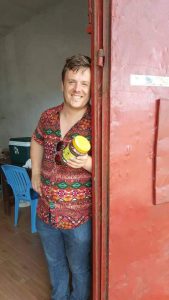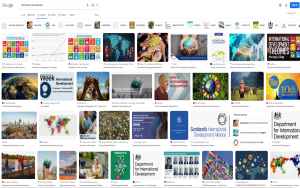Christoffer Guldberg recently finished his dual PhD from King’s College London and the University of São Paulo with a thesis on police-violence, authoritarianism and resistance in Brazil. He has worked at the King’s Summer Society skills programme and as an educator in the UK, Brazil, Denmark and Portugal, and is a member of the editorial collective of the Decolonising the Curriculum Blog: Comfortably Uncomfortable at the School of social Science and Public Policy (SSPP).
In this short text, I’d like to build on a recently published article from my work as an educator in Brazil and at King’s College London’s Summer Society skills programme (Guldberg 2022) providing an innovative and practical way that educators can go beyond decolonising the curriculum and bring decolonisation into the very teaching situation. I found the method being particularly well-suited to engage students and prepare King’s highly diverse, international Pre-University and Undergraduate Summer School cohorts for the critical thinking skills that they will need throughout their academic trajectories and beyond.
I am founding my practice in two findings of emancipatory pedagogy and de-colonial theory, namely that 1) the concepts and institutions that shape our lives, whether they be universities, academic disciplines, or criminal law, are shaped by colonialism and racism, and 2) to be emancipatory education needs to start from the lived experience of the student to avoid recreating social and racial hierarchies implicit in the “banking model of pedagogy”, instead allowing for teachers to be co-creators of knowledge, following Paulo Freire’s method for education (Freire 1970).
I develop Freire further and use Googles Images and Maps to allow students to explore how concepts such as ‘international development’, ‘drug trafficker’, the ‘United Kingdom’, or ‘Brazil’ are shaped by colonial imaginaries and practices that feed into the algorithms of search engines, social media, and other forms of artificial intelligence.
In practice, this can take the form of asking students to do a Google Image search for any concept, including the above, and analyse the results keeping in mind de-colonial and critical theories of race, gender and international relations. As an example, the results for international development clearly demarcate a difference along lines of geography, race, gender and age between the beneficiaries of development and those “experts” in Western universities, NGO’s and development agencies, who – not unlike the teacher of the banking model of education – bring development to the Global South. Similarly, a search for former colonies such as Kenya and Tanzania reveals striking differences to the way the former colonising country is portrayed, with the former being largely portrayed as objects of tourist consumption and places of political instability, and the latter portraying political institutions that have historically benefitted from colonialism. This can provide a ground for discussion both of how the algorithm works, including the different results according to geographic location, and the ways in which the mass of searches and clicks, along with choices of content creators, create an unequal world, which reflects Western-centric notions of development as a linear, homogenous process.
In decolonising the classroom, this method gives students important tools for critical thinking, which benefit them in their academic trajectories, particularly how to think critically about concepts, something that is of course a key part of de-colonial thought and critical pedagogy.


